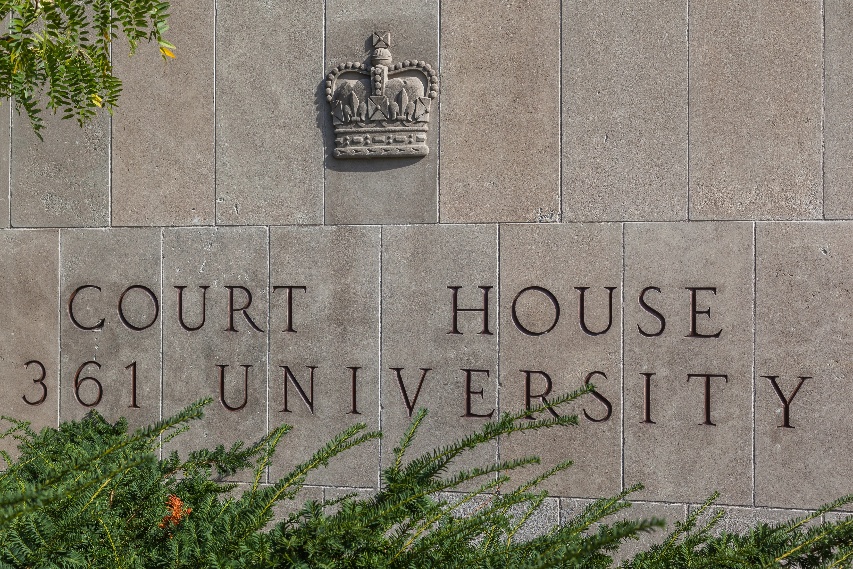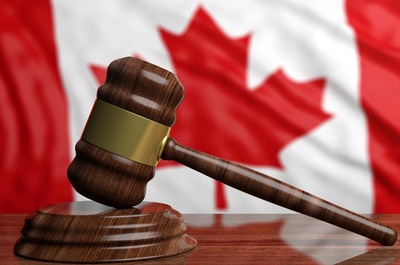The right to counsel, also known as the right to legal representation, is essential to ensuring that the law is fairly and evenly applied to all people who come into contact with the criminal justice system. Most people know about this entitlement, but not everyone understands its importance and purpose.
When and why should you invoke your right to counsel? What is its scope? What happens if you forego your right to counsel? We answer these and other important questions in the paragraphs below.
What Happens You When You Get Arrested in Ontario?
If the police in Ontario detain you, they are required to tell you explicitly that you are under arrest and the reason for the arrest. They must also inform you of your rights under Canada’s Charter of Rights and Freedoms (the “Charter”). The police may then release you if you promise to appear in court at a later date should you be charged with a crime. If you are not released, you will remain in custody until you appear before a judge. At that time, you can ask to be released on bail.
What Are My Rights When I Am Arrested in Canada?
If you are arrested in Canada, you have the following entitlements:
- To be informed of the reason for your arrest
- To remain silent and to avoid self-incrimination.
- The right to counsel, including retaining, instructing, and receiving advice from a lawyer and having a lawyer present when the police are interviewing you.
- Access to legal aid
- Appearing before a judge in a timely manner
- Protection from unreasonable search and seizure
If any of these rights are overlooked or denied to you, your case could be dismissed.
What Is the Right to Counsel in Canada?
The right to counsel means you are entitled to speak with a lawyer if you have been stopped by the police or taken into custody. This entitlement extends to your entire journey through the criminal justice system and includes getting legal advice, meeting with your lawyer in private, and having competent, effective representation. The right to counsel includes access to a court-appointed lawyer if you need one.
What is the Purpose of The Right to Counsel?
The right to counsel is intended to counter the powers of the police and the Crown in detaining, investigating, and prosecuting you. It is meant to ensure that you understand what is happening with your case and that you are able to organize a defence with the assistance of a lawyer.
How Does the Right to Counsel Protect Me?
Having a lawyer to advise you may seem unnecessary if you are innocent and believe that justice will prevail. However, the criminal justice system is complex and occasionally imperfect. Foregoing your right to counsel introduces the following risks:
- Violation of Your Rights
Criminal lawyers understand the purpose of your Charter rights and what those rights look like in action. For example, the right to remain silent and to avoid self-incrimination means more than refraining from speaking. It also means you cannot be compelled to provide information that could incriminate you, such as turning over documents or unlocking your phone for the police. - Problems with Navigating the Criminal Justice System
Police and court procedures can be opaque if you have not been exposed to them before. Your lawyer will tell you what to expect at each stage, including how long certain procedures take, what to bring with you, and how to prepare. - Intimidation in the Criminal Justice System
Some aspects of the criminal justice system can be intimidating. For example, the police may use specialized tactics to extract a confession from you or obtain information damaging to your case. When you invoke your right to counsel, these tactics are less likely to succeed. Your lawyer will recognize the purpose of the interrogation and will advise you when to cooperate with the police and when to remain silent. - Incomplete Understanding of the Charges
Criminal law is complex and nuanced. Criminal lawyers are adept at interpreting the law and understanding how it is applied in context. Because you have a right to counsel, you will have access to a lawyer who will break this down for you in practical terms that are accessible and easy to retain. - Less Effective Legal Strategy
Your lawyer will craft a strategy to give you the best possible outcome, even if that involves a plea bargain. With their experience and familiarity with the criminal justice system, they will know the chances of success of each potential defence. Working on your own puts you at a significant disadvantage where this is concerned. - Harsher Sentencing
If you are convicted, your lawyer will argue for a lower sentence by presenting mitigating factors or asking for alternatives such as community service. Given the specifics of your case and your history with the criminal justice system, they will have a good sense of what the court is likely to agree to.
For these and other reasons, invoking your right to counsel is the best way to protect yourself and obtain the best outcome possible.
If you have been arrested, use your Charter right to have counsel. The team at Zamani Law has the expertise and the deep experience to guide you through your interactions with the police and the court system in Ontario. Contact us today for a consultation. We will ensure your rights are protected, and you have the best legal representation possible. You are not alone when you have Zamani Law in your corner.





